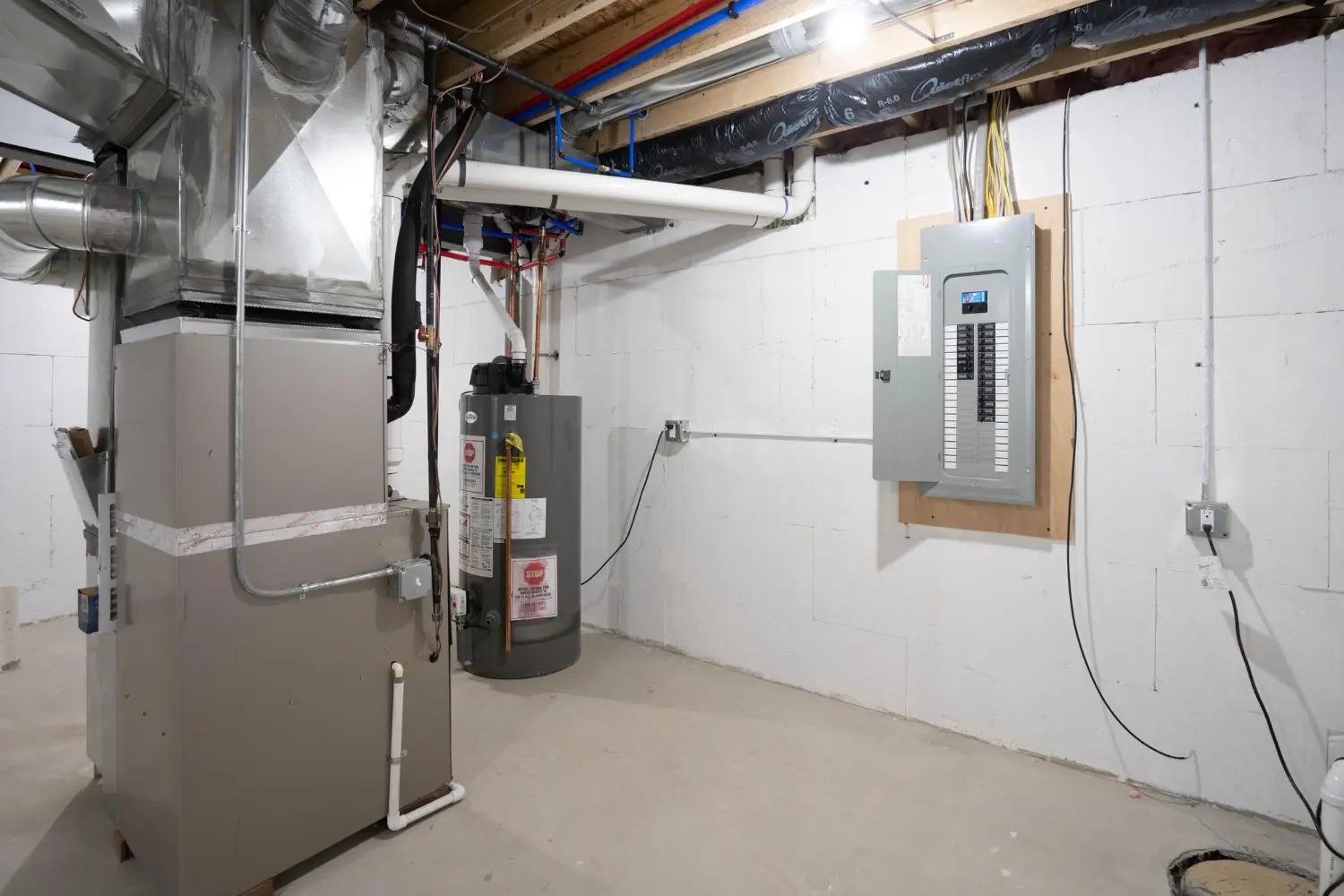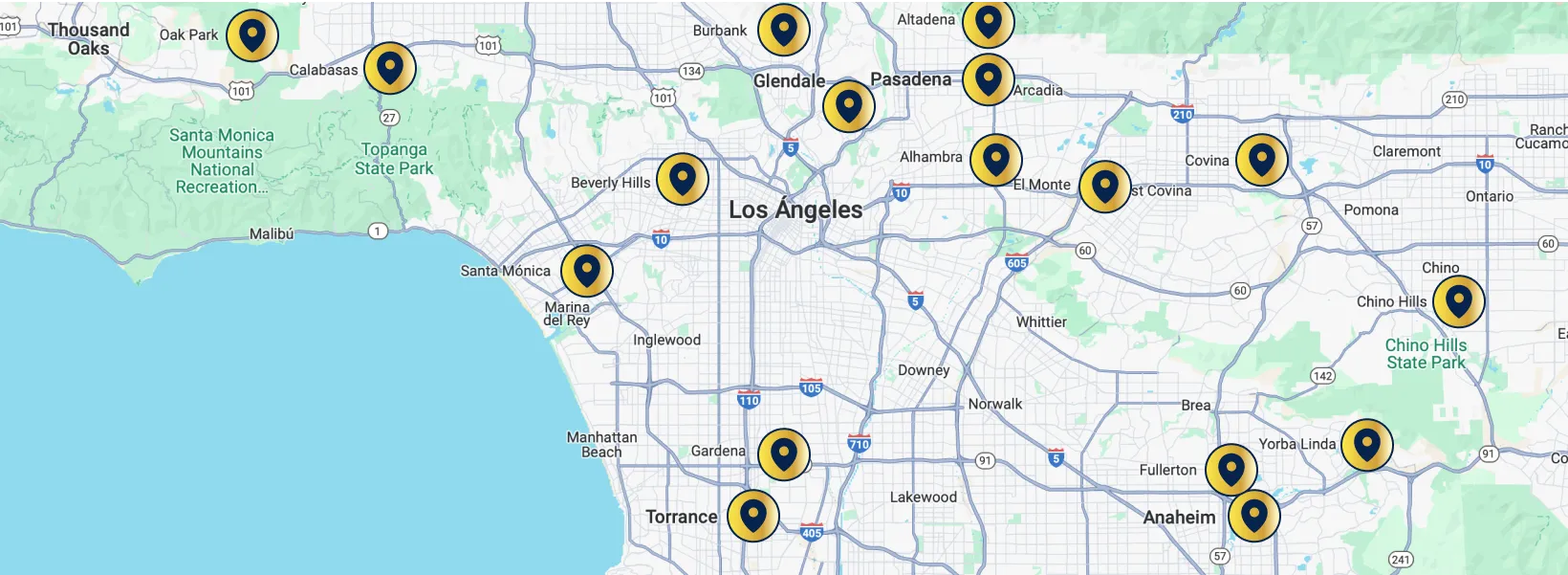Schedule My Service


If you’re hearing loud banging sounds coming from your furnace in Los Angeles, it’s important not to ignore them. These noises are more than just annoying—they can signal a malfunction that needs attention. A quiet hum or the occasional click is normal when your heating system turns on, but a sudden bang or boom could point to a deeper issue. When left unaddressed, those sounds may lead to expensive repairs or unsafe conditions in your home.
Furnace noises can have several causes, and not all of them are easy to spot without opening up the system. Whether it’s a delay when the burners ignite or metal parts expanding under heat, loud bangs usually mean something isn’t working the way it should. If your heater runs fine but sounds like it’s misfiring or rattling the vents, it’s time to take a closer look before it becomes a bigger problem.
Hearing a bang from your furnace or ducts when it starts up can be alarming. The good news is that the source of the noise often falls into one of a few categories. Identifying what might be going wrong can help you know what to expect when our technicians visit your home in Los Angeles.
Here are some of the most common reasons behind loud banging furnace sounds:
– Delayed ignition – This is one of the most common sources of a loud bang. When gas builds up in the combustion chamber and ignites all at once instead of burning steadily, it causes a mini explosion inside the system. This delay can be caused by dirty burners or faulty ignition components.
– Expanding ductwork – When heated air pushes through cold metal ducts, the sudden change in temperature can make the metal panels flex or pop. Although it may sound like a loud bang, this type of noise isn’t always tied to the furnace itself. Duct configuration, material, and age can all play a part.
– Loose parts or damage – Over time and with regular use, some components may shake loose. These include panels, brackets, or internal screws. If something is out of place, it gets knocked around once the blower kicks in, and that movement can produce loud crashing or banging sounds.
Each of these problems can damage your furnace or reduce its performance if left alone too long. For example, delayed ignition doesn’t just make noise—it exposes the unit to unusual heat patterns that can crack the heat exchanger over time. Similarly, repetitive movement caused by loose parts puts more wear on fans and motors.
If you’ve recently added insulation or remodeled your home, duct movement might happen more often due to airflow changes. A homeowner in Los Angeles once thought their house was settling until our technicians traced it back to a series of duct joints that had separated near a second-floor vent.
Recognizing these symptoms early makes a difference. If your system has been running loudly for a while, it might already show added signs of wear. Listen carefully to when the noise happens—right when the unit powers on, after a few minutes, or when the air shuts off—and let our team know what you’ve noticed. This helps us focus on the issue faster and get your system back to safe, quiet operation.
If your furnace is making loud banging noises, the next step is to figure out where they’re coming from. While some sounds are hard to trace without taking apart the unit, there are a few basic checks that can help you narrow it down before calling in our technicians. Knowing whether it’s the furnace itself or the ductwork that’s causing the sound can get you closer to a fix.
Here are three practical steps you can take to begin diagnosing the issue:
If the banging starts as soon as the heat kicks on, the problem could be inside the combustion chamber, such as delayed ignition. If it happens a minute or two later, it may be duct movement or vibration from loose hardware. Pay attention to whether the sound happens once, repeats, or gets louder over time. These clues are helpful when describing the issue later.
If you can access some of the duct paths—such as in an attic, basement, or closet—check for obvious signs of damage, like separated joints or large bends in the sheet metal. Dents or major shifts in alignment might signal that heat expansion is putting stress on specific spots. If insulation recently shifted near the ducts, check that nothing is pressing too tightly against the metal.
Peek at the outside of the furnace for anything loose, such as side covers, screws, or mounting brackets. When these come loose, especially from vibrations over time, they may shift as the blower comes on and result in sudden bangs. While you don’t want to remove parts on your own, gently pressing on panels to see if they rattle can give you an idea of what might be causing it.
While these checks won’t solve the problem on their own, they’ll help you feel more informed going into a service appointment. And if something looks unsafe or unusual—such as scorch marks, a gas smell, or excessive heat—keep the unit off and wait for our professionals to inspect it.
Sudden noises from your furnace usually start small and grow louder over time, especially when inspections or maintenance are skipped for multiple seasons. Keeping your system in check doesn’t just help it last longer—it also keeps common noise issues under control.
A few strategies can help cut down on unexpected bangs:
– Change air filters regularly. Dirty filters slow down airflow and force the blower to work harder, sometimes leading to louder operation or overheating.
– Schedule tune-ups at the start of the heating season. A seasonal inspection gives our professionals a chance to clean burners, inspect the ignition system, tighten panels, and look for wear on parts before the cold weather sets in.
– Keep vents and returns fully open and clear. Blocked airflow can create uneven pressure buildup, which affects both performance and noise.
– Have ductwork inspected if you’re hearing repeated popping or banging. Sometimes the material or layout needs adjustment, especially in older homes that have shifting structures or aging ducts.
One homeowner in Los Angeles told us their furnace had started banging so loudly each morning it would wake the whole family. After years of skipping maintenance, their ignition burners had become covered in debris, leading to delayed gas ignition. Once cleaned and adjusted, their system ran quietly again.
Whether it’s the burners or the blower, ignored problems tend to build up until parts break or the system becomes unsafe. Getting ahead of these issues with regular checks and keeping airflow clear goes a long way toward keeping your home both warm and quiet.
While it’s useful to keep an ear out for new noises and check easily visible features, some problems can’t be fixed without getting inside the system. If you’ve noticed repeat sounds, signs of wear, or that something doesn’t seem right even after changing filters and keeping vents open, it’s time to reach out for support.
Some signs that it’s time to call in our technicians include:
– Loud booms that happen every time the furnace starts
– Metallic popping that continues well into the heating cycle
– A smell of burning or anything resembling fuel or plastic
– Short heating cycles paired with strange noises
– Parts of the home staying cold despite the furnace running
Quick attention from our professionals helps prevent further damage. Loud banging isn’t just distracting—it often means something is about to fail. Repairs now can help protect the rest of your HVAC system from added stress or breakdown. When you bring in trained technicians, you’re not just chasing a noise—you’re protecting your comfort and heating efficiency.
Heating systems don’t have to be loud to do their job. Banging noises from your furnace are often early warning signs that something needs care. Ignoring them can turn a minor problem into a major one. Whether the cause is ignition trouble, shaking ductwork, or loose screws inside the system, the longer it goes unchecked, the more likely it is to damage other components and spike repair costs.
Stay consistent with seasonal maintenance, check filters monthly during colder months, and pay attention to any sudden noises. If something sounds different, investigate right away and don’t wait until the unit breaks down completely. Your furnace should keep you warm without being heard all across the house.
When your heat works smoothly and quietly, your home stays more comfortable and you get more confidence that you’re ready for the colder season ahead. Don’t let unusual sounds become the new normal—respond early and protect your system.
If unusual noises or performance issues persist, it may be time to address the problem promptly with our skilled team at Precise Air Systems, Inc. If you notice signs that indicate the need for furnace repair in Los Angeles, our professionals can provide reliable support to restore safe and quiet operation in your home. For a quick estimate or to book a service visit, please contact us today.
Our customers consistently praise the exceptional service and professionalism of our team. They appreciate the honest advice, meticulous work, and the care taken to ensure their satisfaction.
.webp)
